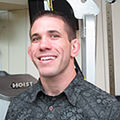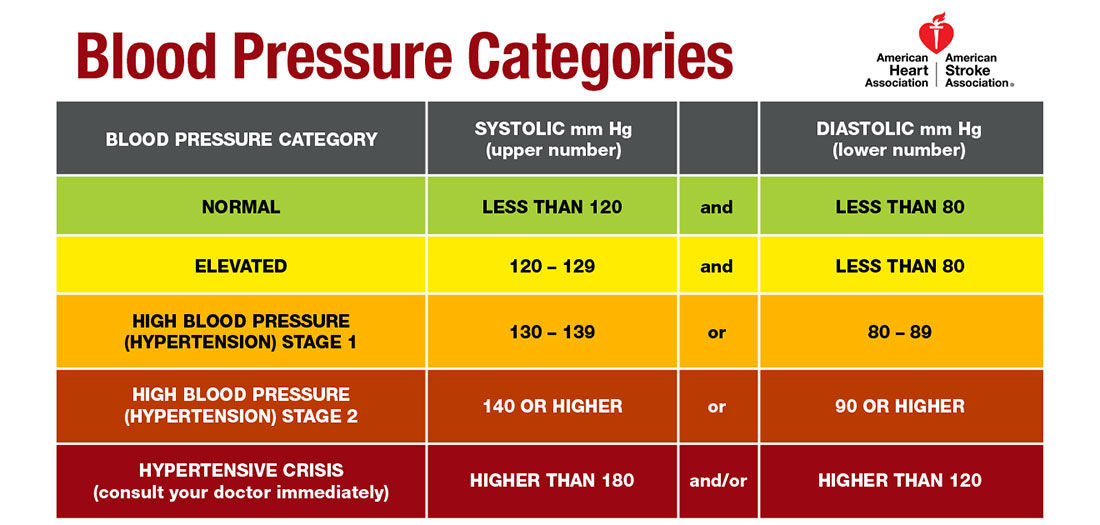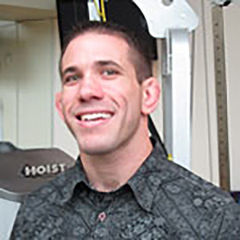A recent change in blood pressure categorizations represents the first update to U.S. guidelines since 2003 and will lead to about 14% more people being diagnosed with hypertension, from 32% of the adult U.S. population to 46%. Notably, although the update will ultimately result in more diagnoses in hypertension, the authors of the latest guidelines emphasized that the first line of defense in combatting a rise in blood pressure should be lifestyle modifications such as dietary changes, weight loss, reduced salt intake, quitting smoking, and increased physical activity, and not medication (for most people). This represents an important opportunity for ACE Certified Professionals—particularly Health Coaches—to work with the healthcare community to assist their clients in improving and/or maintaining healthy blood pressure through supporting healthy lifestyle change. In summary, the update has the following important impacts:
- More people will be diagnosed with hypertension
- ACE Certified Professionals—particularly Health Coaches—may be called upon for more assistance with healthy lifestyle changes to improve or manage blood pressure
High blood pressure, often called “the silent killer,” may present with no symptoms and accounts for the second largest number of preventable heart disease and stroke deaths, second only to smoking. Because complications from hypertension tend to appear at lower blood-pressure values than established in the previous guidelines, the American Heart Association (AHA), The American College of Cardiology (ACC), and 9 other health organizations have determined that high blood pressure should be treated earlier through the implementation of lifestyle changes and, for some, medication.
Why are these changes happening?
- Data suggests that the risk of stroke, heart attack, and other blood pressure-related consequences begins to increase at systolic blood-pressure readings above 120 mmHg and diastolic BP readings within normal ranges (now defined as “elevated”).
- Risk doubles when measurements are recorded at systolic BP at 130 mmHg and diastolic BP at 80 mmHg (now defined as “stage 1 hypertension”).
- A growing body of evidence suggests that lower blood pressure is better for your health.
What is changing?
- The new definition of high blood pressure is 130 mmHg and higher for systolic measurement, and/or measurements of 80 mmHg and higher for diastolic readings. (This is a change from the old definition of 140/90 mmHg).
- The prehypertension category has been removed.
- The importance of measuring blood pressure with proper technique and using an average of two to three readings on at least two separate occasions are stressed.
- Clinicians are urged to prescribe medication for stage 1 hypertension only if a patient has already had a cardiovascular event, is at an elevated risk of stroke or heart attack, or presents with diabetes, chronic kidney disease, or atherosclerotic risk.
- The identification and consideration of socioeconomic status and psychosocial stress as risk factors for high blood pressure are now included in the plan of care.
- Most of those who are newly diagnosed due to this update will be advised to act (e.g., change their diet, lose weight, reduce salt intake, quit smoking, and increase physical activity) and may not require medication immediately.
What is the goal?
The goal of this update is to promote early intervention and management of hypertension to reduce further increases in blood pressure. In addition, there is a push to minimize complications from hypertension while offering comprehensive guidance to doctors managing adults with hypertension. The AHA and ACC will continue to manage guideline preparation for hypertension and cardiovascular disease risk factors.
From the perspective of health coaches and exercise professionals, it is encouraging to see that along with the new definition for high blood pressure, the immediate call to action for managing elevated blood pressure first involves lifestyle changes. It will be important going forward that we work together with the healthcare community in providing education about this update and do our part in supporting client lifestyle change. Managing blood pressure is a lifelong journey and not a one-time event. Close monitoring, open discussion with healthcare providers, and the client’s belief in personal control over health outcomes can make the blood pressure management process more meaningful and productive.
Learn how to develop physical activity and nutrition coaching skills to empower clients to long-term, healthy lifestyle change recommended by the AHA and ACC with ACE's Health Coach Certification.




 by
by 










